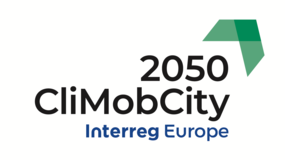The partner cities Leipzig, Thessaloniki, Bydgoszcz and Plymouth together with the supporting partners TU Delft (also lead partner) and PIK discuss the progress of the cities in defining scenarios and translating their defined measure packages into mobility modelling input. Also, the different mobility modelling approaches are discussed.
All cities us business-as-usual (BAU, Phase 1) scenarios for their future target year(s) as a reference basis. These scenarios are particularly important because demographical developments (population size, composition) as well as economic and spatial developments have already a large impact on mobility. Also, some cities have already started mobility plans that will change the future mobility, even if no additional policies would be implemented. Most striking here is Thessaloniki: the city is implementing a metro system that will significantly change mobility patterns in the future.
Next, on basis of the measure packages, different scenarios have been defined. Initially the proposed measures were described in generic terms, but to be able to analyse the impacts in mobility models, quite detailed information is necessary. This for instances refers to the location of public transport stops, P+R facilities, the length and location of bicycle paths etc.
Further, the approach in transport/mobility modelling is discussed - both in terms of types of models to be used as well in terms of required output. Here we can see that the more traditional car-based peak hour transport models fall short in predicting modal shift effects of, for instance, improving public transport or bike and pedestrian infrastructure. All partner cities now have chosen to use advanced modelling tools that are able to capture most of the effects of the envisaged measures.
Still, some aspects cannot be included - such as the expected impact of new mobility services. For these impacts, additional analysis is necessary.
Next to these modelling efforts, the cities discussed preparing the Action Plans and the actions the cities want to include in these, as well as the project report.
During the (virtual) Site Visit interesting presentations are given about the Flexa and Clever Shuttle on-demand transport services now operating in Leipzig (and other German cities). Both systems provide an add-on to regular public transport and as such provide additional mobility options for travelers - especially in areas with lower regular public transport coverage.
During the Seminar, an introduction was given on the mobility hub approach of the Dutch city of Delft, where shared cars are made available for inhabitants of a new residential area. In the 'package deal' for their new homes, this shared car / shared mobility alternative is offered but at the same time, the residents are not allowed to have a public parking space permit in the city.


